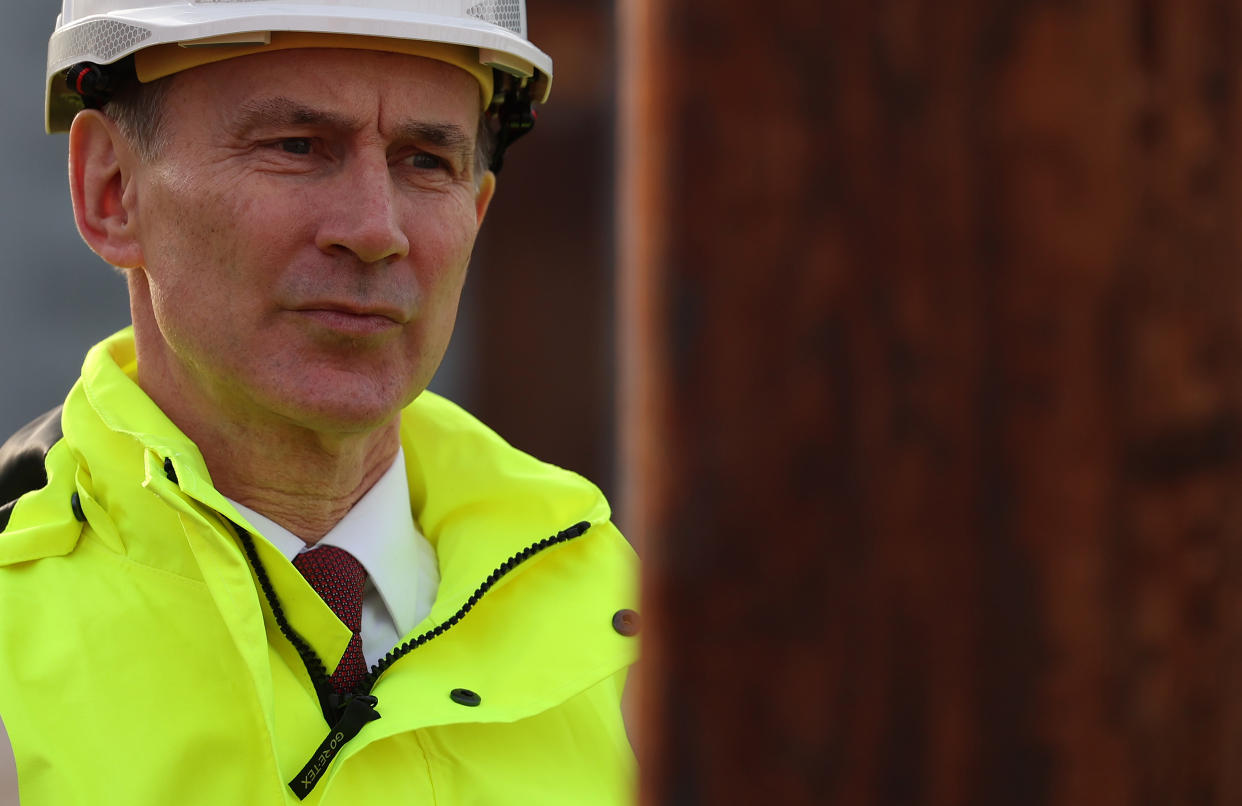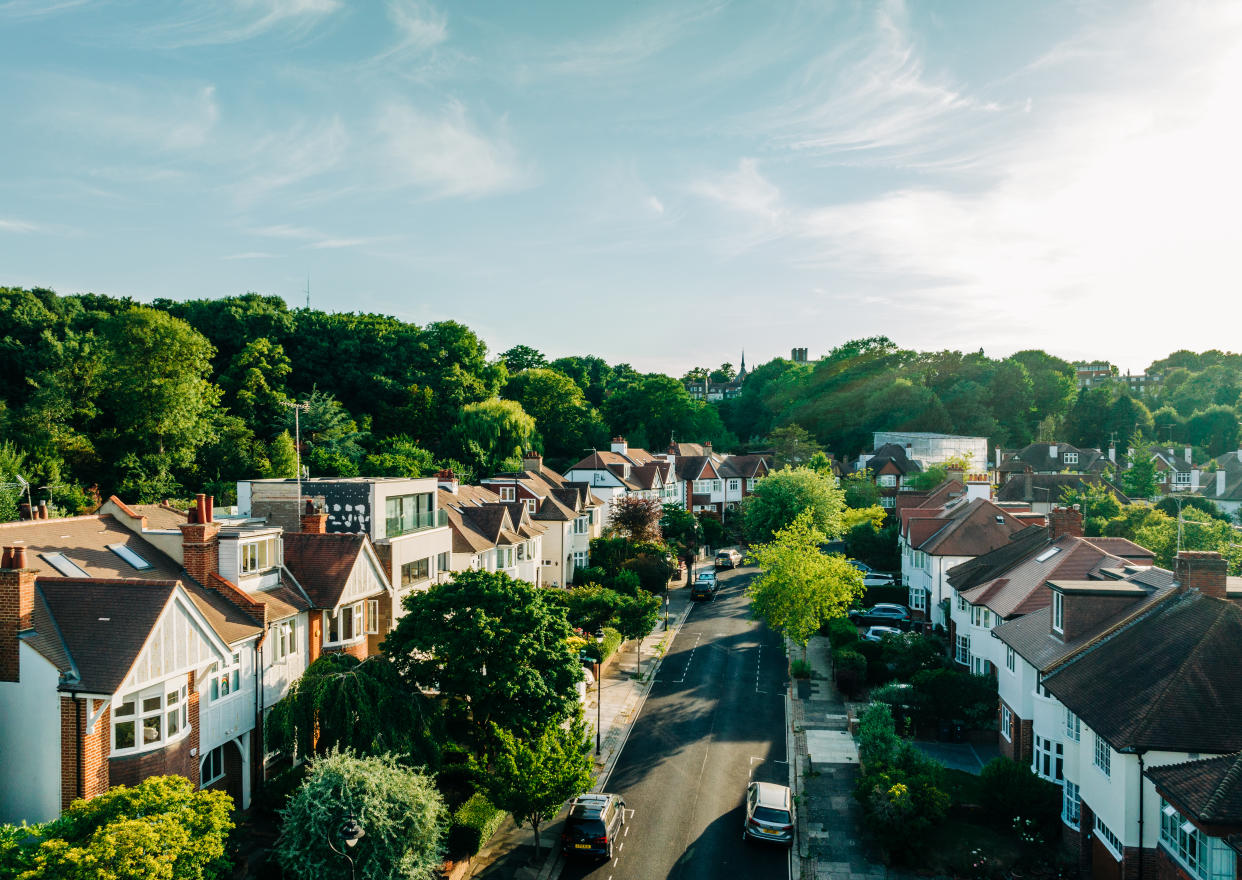The pros and cons of a 99% mortgage

If rumours are to be believed, Jeremy Hunt’s spring budget will include a government-backed 99% mortgage to help first-time buyers who are struggling to get a deposit together.
We asked several mortgage experts what such a scheme might look like and what anyone thinking of taking one out should know.
How will a 99% mortgage scheme work?
Very few details have been released publicly but the 99% mortgage is expected to work in a similar way to the Mortgage Guarantee Scheme, which was launched in 2021 and involves putting down a 5% deposit.
The government would bear some of the additional risk of such a high loan-to-value ratio, possibly covering the costs of the extra insurance required, encouraging more lenders to offer this product as an option.
There’s also rumours that this mortgage will have a long-term element to reduce the chance of negative equity.
Read more: What could Jeremy Hunt announce in this week’s spring budget?
“They’re most likely to be offered on a longer-term basis (i.e. five-year fixed/10-year fixed) and will be offered by lenders with government backing,” said Perry Graves, senior mortgage advisor at Tembo. “I’d expect it’s unlikely to come with large product fees, as they won’t serve the target market. There may, however, be a small valuation fee as lenders won’t want to add fees to a loan that has such little equity.”
Potential borrowers should be aware that there may also be stricter criteria when applying.
“We would expect there to be robust affordability checks and stress tests at higher rates, with conditions around loan-to-income as was the case with Help to Buy, with a cap of 4.5 times income. It is also likely to be repayment only,” says Mark Harris, chief executive of SPF Private Clients.
“It is unlikely that an approach such as Skipton’s Track Record, where evidence of paying rent over a period of time is taken into account when assessing what the borrower can afford the mortgage, will be utilised. If the scheme is an extension of the current Mortgage Guarantee Scheme, then there would be a cap of £600,000 on the property value bought.”
There may also be limitations on the type of house it applies to, flags Mark Humphrey, director at MHC Mortgages: “It may not apply to New Build Properties, as they tend to carry an inflated price due to their ‘newness’, which would present a very high risk of negative equity.”
What are the advantages?
The most obvious advantage of the scheme is that it gets people out of paying high rents and onto the housing ladder, years before they otherwise would, because they need to save less from a deposit.
“Let’s say you’re able to save £300 per month into your deposit fund, and plan to buy a house worth £200,000. Saving a 10% deposit would take you over five years,” said Graves. “In comparison, putting away a 1% deposit would take less than seven months. That’s years knocked off one’s time to buy, and therefore their time renting.”
Read more: 5 things on Jeremy Hunt’s 'budget list' that could impact your finances
In contrast to renting, with a repayment mortgage you are building up equity in your home every month, and will also benefit should house prices increase.
“We looked at what taking a high LTV mortgage could mean,” said Harris. “If you take Skipton’s Track Record product (five-year fix at 5.35%, 99% LTV on a £297,000 loan), during those five years, the debt will be eroded by £25,000 with hopefully, house price inflation further improving the value of the property. Even with no increase in house prices over those five years, the borrower’s LTV will fall to 91%.”

What are the disadvantages?
One of the major disadvantages with this type of mortgage will be that they’re expensive, with higher rates of interest for borrowers.
“This is because 99% mortgages will be seen as slightly riskier from a lender viewpoint," says Ben Thompson, deputy CEO at Mortgage Advice Bureau.
With such a large LTV ratio, there’s also an increased chance of negative equity.
“A very low 1% deposit balanced against high borrowing means that buyers have very little equity invested in their homes to start with, and during unpredictable market conditions such as these, even a small drop in house prices could result in negative equity,” says Kevin Sims, director of sales at SO Resi.
The chance of this can be mitigated by planning to stay in the property long term.
“Negative equity is usually more of a short-term problem, where property prices dip, but history has shown that they generally recover in time. Don’t see this purchase as a short-term investment,” advises Humphrey.
Read more: What is the First Homes scheme and who is eligible?
Borrowers can also protect themselves against negative equity by trying to overpay a little of their mortgage every month. It’s likely the scheme will have this facility, although borrowers should check the fine print.
Another negative is that not everyone will be able to take advantage of this product because of its strict criteria. “For those with poor credit ratings, or failing mortgage affordability, 99% mortgages won’t be a silver bullet,” flags Graves.
Who will offer these mortgages?
It’s thought that most of the mainstream lenders will offer this product. “We expect to see the well-known high street lenders join in, especially those that have been involved with the 95% Help To Buy Guarantee Scheme, i.e. Halifax, NatWest, Barclays and a handful of others,” says Graves.
There’s likely to be a lot of choice out there so, to find the right product for you, it’s important to speak to a mortgage broker who knows what’s on offer across the market.
What alternative schemes are already available?
This new offering is likely to be very similar to the government-backed Mortgage Guarantee Scheme, the only difference being the latter requires a bigger 5% deposit.
Shared ownership, where you buy a share of a new build property and pay rent on the rest is already currently available for those with smaller deposits. “Shared Ownership works by offering a 5% deposit of a share of a home, which means that though the deposits are similarly low, proportionally they offer a greater stake against the value of the property,” says Sims.
“Unusually at the moment, the interest rates on mortgages are often higher than the comparable [shared ownership] rent. So, on an overall cost basis, shared ownership could be cheaper on a monthly basis than a standard mortgage,” says Graves.
Read more: How first-time buyers can get on the property ladder in a cost of living crisis
Other schemes include Save to Buy, which puts monthly rent towards a deposit and Rent to Buy, which offers renters the chance to save for a deposit by renting a new build home at below market rate.
As well as these government-backed schemes, there’s also the Skipton Track Record Mortgage, which allows renters to get on the property ladder with a small or no deposit and takes into account your rental payment history.
Will this solve the housing problem?
While a 99% mortgage will help some first-time buyers, all our experts believed it won't solve the source of the housing crisis in the UK.
“The government must look at the current supply,” says Thompson. “Whilst we always welcome support to help prospective buyers make their homeownership dreams a reality, there’s no point simply stoking demand without boosting housing supply.”
Watch: Chancellor: Budget will be 'prudent and responsible'
Download the Yahoo Finance app, available for Apple and Android.


